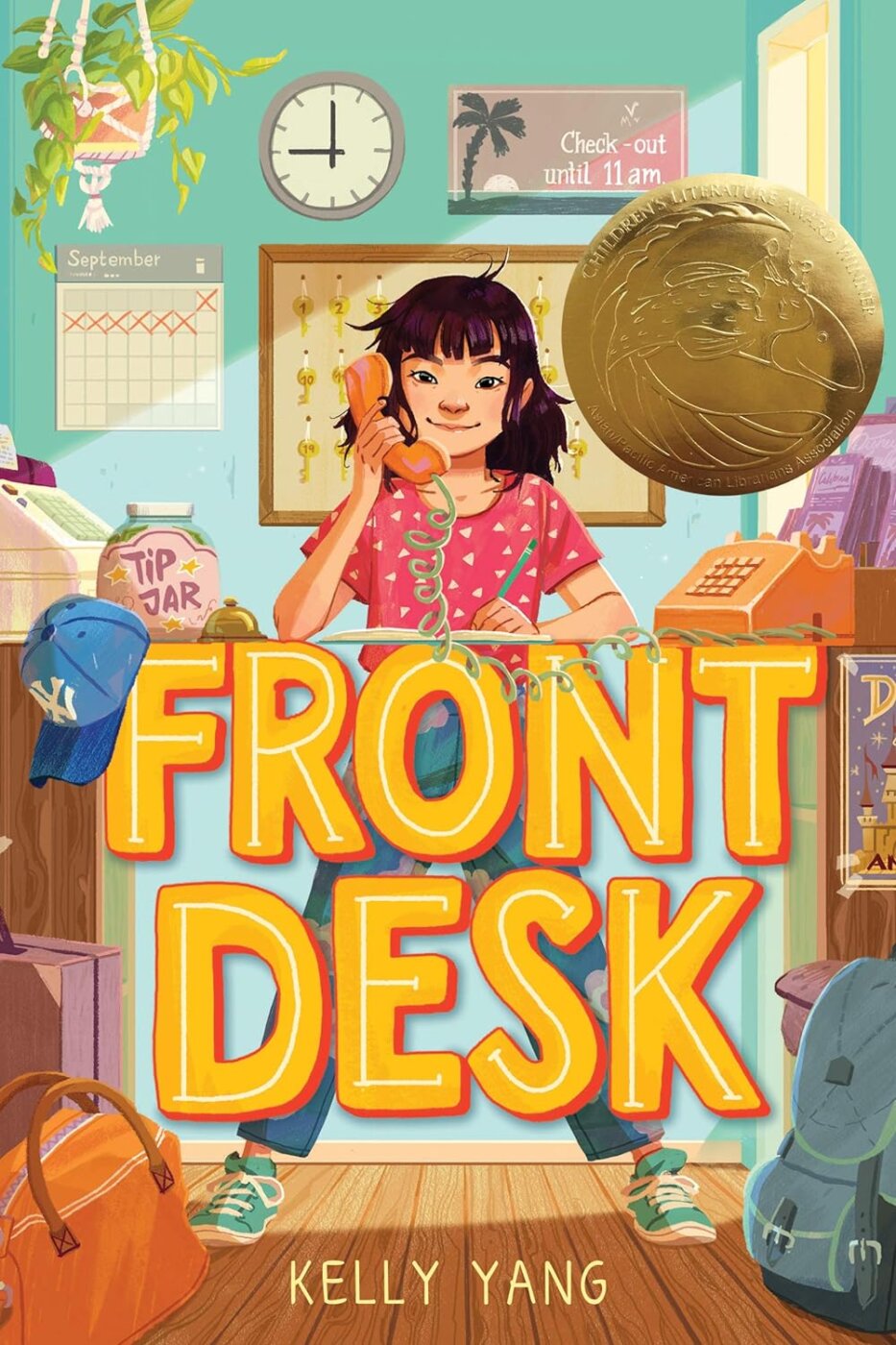Ethan Langefels describes Fifth Grade at Colorado Academy by way of a simile. “It’s like if you were trying to lift up a big, heavy piece of wood. Your teachers won’t do it for you, but they will help you figure out a way for you to lift it up yourself.”
Getting better at making sense of unfamiliar ideas while learning new things about writing and history is hard, Ethan and his classmates explain; but, just as when that big log inches off the ground, it’s also exhilarating.

It all starts, in one sense, at the very beginning of the school year, when Fifth Graders read the novel Front Desk, author Kelly Yang’s award-winning autobiographical debut about a 10-year-old Chinese American immigrant girl who manages the front desk of a motel while her parents clean the rooms.
“Front Desk has exposed our class to a lot more ‘real’ topics like racism,” says Caroline Miller.
Digging into Yang’s absorbing tale of immigration, poverty, and race, students observe the author “zooming in” to offer rich details about the characters’ daily lives and complex backstories, and they practice expanding “small moments” in their own writing.
“The big thing for me,” Naomi Giarratano shares, “is that afterwards, we do these discussion sessions where we say what we learned from the book. Now, after 26 sessions, our thinking has evolved so much.”
Their writing blossoms, too. “It feels a lot more open,” is how Leven Weekes characterizes the experience of taking her own small moments—like when Front Desk’s young narrator, Mia Tang, relishes the luxury of taking a hot shower for the first time—and making them bigger through her observations and ideas.
“I used to have trouble with writing,” acknowledges Elle Thomas, “but when you’re given the freedom to write whatever you want, in your own words, you find a lot more things to say.”
The practice the students get while parsing the novel’s themes and working on their writing carries over to social studies and their focus on 20th century American history, as they look into the Great Migration that saw millions of Black Americans leave the racist South to find opportunity in the North.
Says Jamie Zisler, “I never knew about the Great Migration before. It’s a powerful moment in history— inspiring, but also sad; I can’t really explain it.”
Learning about the Green Book that Black travelers relied on from the 1930s to the 1960s to steer clear of hostile towns, gas stations, restaurants, and hotels as they made their way across the country, Audrey Linsley feels it was “incredible that there were so few safe places they could go that they needed a guide book to tell them.”
She goes on, “This is the first time we’ve ever really seen how horrible things were—the sad truth.”
But the students perceive a bright side, too—their growing confidence and openness in encountering challenging ideas, and arriving at their own.
For Xavier Joymon, those gains have become most apparent through partner work and group discussions, where he’s learned to consider diverse opinions and seek compromise. “I’ve had a big jump, from being able to write a couple of sentences to a couple of pages. Talking to each other about our ideas, I’ve noticed we all have a lot more of our own thoughts to put down.”
Even outside the homeroom the difference has been noticeable, adds Caroline Miller. “We have table groups in art, so while we’re working on our projects, we can also just talk about anything we want. It’s a way to let your creativity flow and just express yourself.”
In Fifth Grade, continues Naomi Giarratano, “You can come up with things you never imagined. You’re creating your own world.”
